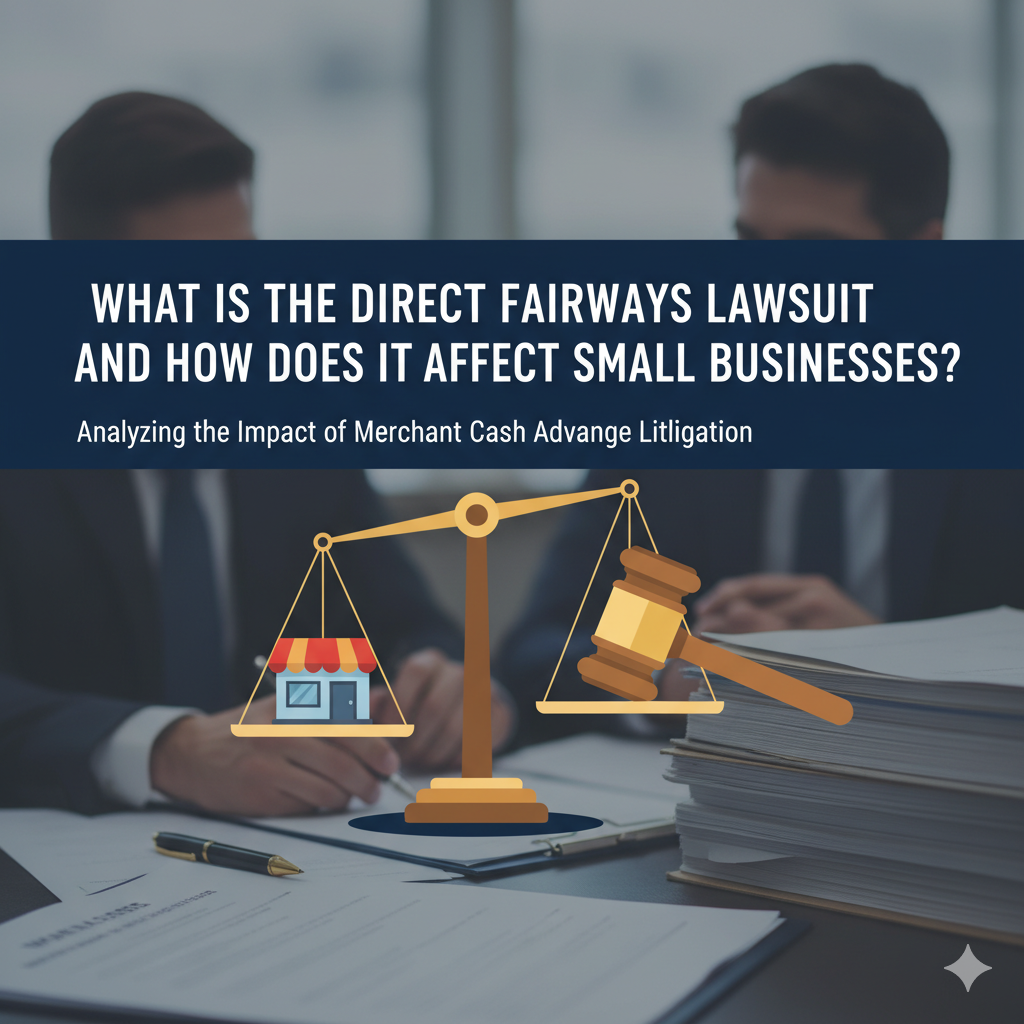The Direct Fairways lawsuit has drawn attention from many small business owners who purchased golf course advertising services but later faced billing issues or undelivered ads. Direct Fairways LLC, a company known for offering scorecard and yardage-book advertising, now faces multiple complaints for misleading sales tactics and unauthorized charges.
If you’ve ever signed an advertising contract with them, understanding the facts behind these consumer complaints is crucial. In this article, we’ll explore what happened, what the Direct Fairways complaints mean, and how you can protect your business from similar advertising scams in the future.
Who Is Direct Fairways LLC?
Direct Fairways LLC is an advertising company based in Arizona that claims to help local businesses promote their services through golf course advertising—mainly on scorecards, yardage guides, and golf course materials.
The company promises high exposure to golfers and local audiences. However, many clients say the advertising services they paid for were never delivered as promised. These growing Direct Fairways complaints have sparked concerns about the company’s business practices and the truth behind their marketing claims.
What the Complaints Are About
| Complaint Type | Description | Frequency | Example Evidence |
|---|---|---|---|
| Misleading Sales | Promises of ad placement that were not delivered | High | Client emails, contracts |
| Unauthorized Billing | Charges without consent or auto-renewals | Medium | Bank statements, invoices |
| Poor Ad Placement | Ads placed in less visible locations | Medium | Scorecards, yardage guides |
| Lack of Proof | Company did not provide evidence of ad placement | Low | Email requests, screenshots |
Many Direct Fairways complaints focus on misleading sales promises and unauthorized billing. Small business owners say they were told their ads would appear on golf course scorecards or yardage books, but often saw no proof of placement.
Others report unexpected charges or automatic renewals hidden in contracts. These advertising disputes have led to growing frustration among clients who feel misled or overbilled, raising serious questions about the company’s sales tactics and customer transparency.
Legal and Consumer Protection Aspects
| Option | Description | Steps to Take | Expected Outcome |
|---|---|---|---|
| Contact Company | Request proof of placement | Call/email with records | Possible refund or clarification |
| File BBB Complaint | Report issues formally | Submit documentation online | Resolution via BBB |
| Consumer Protection Agency | State/federal complaint | Fill complaint forms | Investigation or warning to company |
| Legal Action | Small claims or lawyer assistance | Gather contracts/evidence | Refund, compensation, or court ruling |
The Direct Fairways lawsuit highlights issues like false advertising, breach of contract, and deceptive trade practices. Many businesses claim they were misled into paying for services that were never delivered. Consumer protection agencies and the Better Business Bureau (BBB) have received numerous complaints about Direct Fairways LLC.
Understanding your legal rights is important—affected customers can file disputes, request refunds, or even take legal action if misrepresentation or unauthorized charges occurred in their advertising agreements.
Impact on Small Businesses and Advertisers
| Tip | Description | Benefit |
|---|---|---|
| Read Contracts Carefully | Check terms for auto-renewals and hidden fees | Avoid unexpected charges |
| Verify Placement Proof | Ask for previous ad examples | Ensure service delivery |
| Compare Advertising Options | Print vs digital, cost vs reach | Make informed decisions |
| Watch for Red Flags | High-pressure sales, vague metrics | Prevent scams and misleading offers |
The Direct Fairways complaints have significantly affected many small businesses. Clients report financial loss, wasted time, and missed advertising opportunities because promised scorecard and yardage-book placements never happened. Some also experienced unexpected billing charges, adding to frustration.
Beyond immediate losses, these issues can damage trust and confidence in advertising services, making business owners cautious about future investments. Understanding these impacts helps other advertisers avoid similar pitfalls and make informed choices when selecting marketing partners.
How to Determine If You’re Affected
| Checklist Item | What to Look For | Documentation Needed |
|---|---|---|
| Signed Contract | Did you agree to ad placement? | Contract copy |
| Ad Delivery | Were ads placed as promised? | Scorecards, yardage guides |
| Billing Accuracy | Were charges correct? | Bank statements, invoices |
| Communication | Company responses and promises | Emails, call logs |
To know if you’re impacted by Direct Fairways LLC, start by reviewing your advertising contract and invoices. Check if the promised scorecard or yardage-book placements were delivered and if any unauthorized charges appeared.
Gather all emails, payment receipts, and communication records as evidence. Compare the services promised versus what was actually received. If you notice discrepancies, you may be affected, and documenting these details is the first step toward resolving disputes or seeking a refund.
What To Do Next If You Believe You Were Affected
If you suspect you’ve been affected by Direct Fairways LLC, first contact the company to request proof of your ad placement and clarify any billing issues. Keep a record of all communication and contracts. You can also file complaints with the Better Business Bureau (BBB) or relevant consumer protection agencies. In serious cases, consider consulting a lawyer or joining a collective action to recover losses and hold the company accountable for misleading advertising practices.
Prevention: How to Avoid Similar Advertising Traps
To avoid issues like the Direct Fairways complaints, always read your advertising contract carefully before signing. Look for placement guarantees, automatic renewal clauses, and hidden fees. Ask for proof of previous ad placements and verify the company’s reputation through reviews or the BBB.
Avoid high-pressure sales tactics and compare print versus digital advertising options. Taking these steps helps small business owners make informed decisions and prevents falling into misleading or costly advertising agreements.
Also read: Why Small Law Firms Are Turning to Virtual Legal Support Services
Additional Industry Insight
The Direct Fairways lawsuit highlights broader challenges in the golf course advertising industry. Many companies promise high exposure through scorecard and yardage-book ads, but delivery and transparency often fall short.
Small businesses should be aware that such print advertising complaints are not isolated. By understanding common issues—like misleading placement claims and unauthorized billing—advertisers can make smarter choices. Staying informed about industry trends and emerging digital alternatives helps businesses avoid similar pitfalls in their marketing efforts.
FAQS
Is Direct Fairways LLC a scam?
Many small business owners have reported misleading advertising practices and unauthorized billing, but each situation may differ.
How can I know if I am affected by Direct Fairways?
Check your contracts, invoices, and ad placement proof to see if the promised services were delivered.
Can I get a refund from Direct Fairways?
Yes, if you have evidence of undelivered ads or unauthorized charges, you can file a complaint or request a refund.
What steps should I take if I was misled?
Document all communication, contact the company, file a complaint with BBB or consumer protection agencies, and consider legal advice.
How do I avoid issues with similar advertising services?
Always verify placement guarantees, read contracts carefully, and compare print vs digital advertising options before committing.
Conclusion
The Direct Fairways lawsuit serves as an important warning for small business owners considering golf course advertising. Many clients experienced misleading promises, undelivered ads, and unauthorized charges, highlighting the need for careful review of contracts and billing.
By staying informed, documenting agreements, and asking for proof of service, businesses can protect themselves from similar issues. Always research advertising partners, compare options, and make decisions that ensure transparency, accountability, and real value for your marketing investment.


